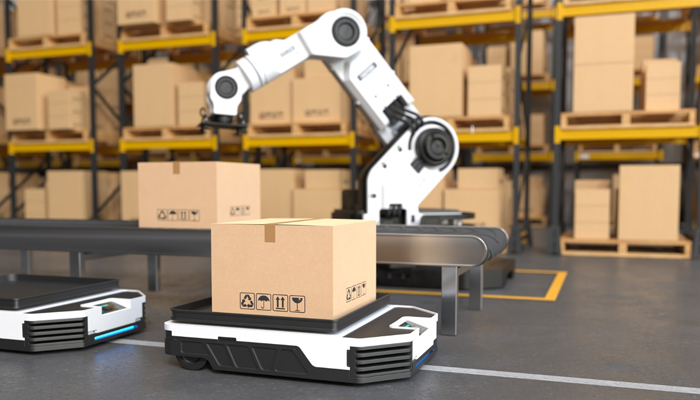Posted On February 19, 2025
How AI is Revolutionising Supply Chain Management and Logistics
Supply Chain & Logistics is reshaping at global level considering multiple factors like uncertainty in supply-demand, continuous innovation, buying behaviour and so on. Its becoming challenging for businesses to analyse & predict such dynamic behaviours & changes. That’s where AI is coming to play its role to allow businesses to manage supply chain & logistics in efficient & robust manner.
Predictive Analysis & Demand Forecasting
Demand forecasting is one of the key challenge for businesses where just-in time inventory is also rely on that. But advanced AI models/tools are adding value by analysing time-series data, trends, market variations along with external factors like weather or economic shifts. This allows businesses to establish balance between supply and demand.
Route Optimisation
After demand forecasting, next major blocker for companies is to plan the logistics & transportation. Efficient & optimum use of resources like fleets, workforce, warehouses etc become crucial as multiple factors are rely on it like cost, timely deliveries, customer experience and so on. Dispatch teams face such challenges & without right tools/technology its challenging to meet desired results.
AI is adding value by eliminating manual efforts & human errors in key areas like:
- AI driven route optimisation based on historical & live traffic data
- Data syncing with demand forecasting & plan routes accordingly
- Autonomous dispatch scheduling
- Smart load distribution
- Driver safety
- ETA predictions & alerts
- Fleet maintenance plans
Warehouse Automation
Companies at global level are investing in Robotics and AI-powered inventory management systems to transform warehouse operations by reducing manual errors, speeding up order processing, and optimising storage. They are also getting benefits from local government bodies in form of R&D, Grants, Rebates and so on which encourage businesses to invest more on technology to streamline operations like:
- Automated order processing and fulfilment
- AGVs
- AI powered inventory management
- Data reporting by combining patterns, prediction & analytics
Smarter Procurement
Procurement & supplier relationships are complex processes where companies invest a lot specially when they are dealing with international suppliers/partners. With use of AI, companies can make informed decisions based on aspects like:
- Reliable suppliers based on market reviews
- Automate contract handling
- Identify potential risks
- Price comparison along with service/product reviews
Risk Management & Fraud Detection
Its crucial to identify & manage risks like supplier conflicts, natural disasters, geopolitical changes, service disruptions and so on. Also due to increased dependencies on international vendors/suppliers/customers etc. which brings frauds at different levels in different ways. AI systems are handling such issues in efficient & timely manner. Key reference points are:
- Irregularities in compliance
- Detecting activities like counterfeit invoices, fraud payments etc
- Identify irregular patterns in processes
- Keep track of financial activities
Go Green
Due to regulations, companies are moving towards sustainability & AI is adding its value in terms of energy consumption, minimise emissions, and implement sustainable logistics practices and monitoring their carbon footprints.
Conclusion
AI is redefining supply chain management by making it more predictive, automated, and data-driven. Businesses leveraging AI-powered logistics solutions gain a competitive edge through cost savings, efficiency, and resilience against disruptions.








